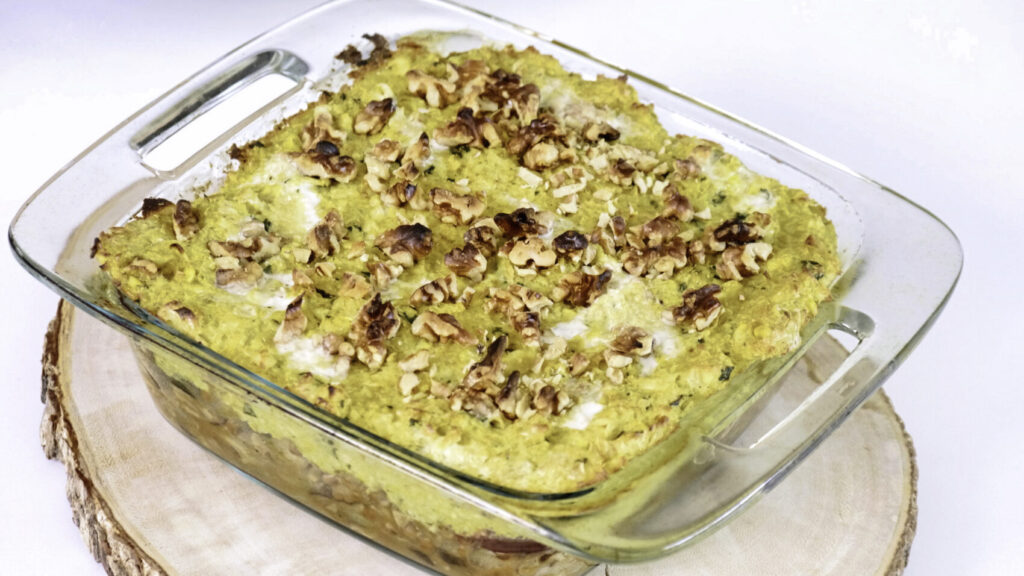Adapting meals to be plant-based
Featured Author: Asha Wheeldon
Hi everyone, I’m Asha Wheeldon, the founder of Kula Kitchen and co-host of Chop It Up. We focus on creating plant-based food to nourish and empower our community. Many of the meals and flavours are inspired by food I grew up enjoying with my family in East Africa and Toronto. We are driven by community through collaborations with other food producers and local partners.
Today, for the Vancouver Humane Society’s PlantUniversity Platform, I’m going to share some tips on how to get creative in your own kitchen and help you adapt traditionally non-plant-based recipes to be plant-based.
If you’re interested in learning more after watching this video, you can find great resources on VHS’s PlantUniversity Platform and subscribe to get involved in VHS’s work to help animals, people and the planet.
I remember the first couple of months during my transition to PB diet. The first dishes I was looking to recreate were some of my favourite childhood dishes that were mostly my mother’s, such as stews, sauces and baked goods. Over time I came to terms with the fact that what I create will not be the same, the texture and flavour will not be the exact copy of the “original” recipe. I found myself enjoying the process and the outcome of the dishes, I would share with my friends and family who also loved them.
I want to share some of the things I think about and steps I take when I’m trying to adapt a recipe that is not traditionally plant-based, to be plant-based:
I think about what I want the food to taste like, the texture and flavour:
- Some of the more versatile alternatives are tempeh, textured vegetable protein; they come in granules, slices, curls and cubes. Coconut milk for yogurt, nutritional yeast for cheese. For the most part, you can use the same seasoning with a few adjustments.
- Mushrooms like oyster and king oyster mushrooms are a great alternative for fish.
Small adjustments go a long way:
- One of the great eye-opening moments I had was realizing that most of the foods I loved were mostly plant-based, all I had to do was remove or replace 1-2 ingredients. For example…Sukuma wiki is sautéed collards or cabbage prepared with meat protein and enjoyed with chapati or ugali, a corn based porridge. I often add soy or mushroom to make it plant-based. It’s still one of my favourite meals.
I have my favourite ingredients available:
- Some of them include: lentils, collards, and black eyed peas.
- Before I learned about some of the meat alternatives like soy, I would cook with ingredients I was familiar with and love. This made for a comfortable experience. I cook with lentils and black eyed peas often, you can find them in most grocery stores, they have lots of protein and fibre.
Seasoning is gold; I like to keep stocked with various spices in my pantry.
One of the most important things to me about food and recipes, are the flavours! I love foods that are rich in flavour so the first steps includes stocking up on my favourite spices and adding some new options (I may have and continue to go overboard sometimes).
I have a few suggestions that can help you with getting the perfect flavours for your dishes:
I found that if you keep to the original seasoning which is often already plant-based, you can still maintain the original taste of the dish.
Some of my favourite spices and herbs are:
- Cayenne, Turmeric, Berbere, cumin, curry powder, cardamom, cinnamon.
- A tip: I often blend the spices to create different flavours. For example, if I am preparing a rice dish, the spices would be on the lighter side and not as spicy. For stews I can go all in and sometimes add in some of the sweeter spices like cardamom.
What’s great about blends is you can use your staples to expand your seasoning options. This also applies to marinades when incorporating spices and sauces.
I’m going to show you how to make one of my favourite and super simple spice blends:
You take 1 tablespoon of cinnamon, cardamom, turmeric, cumin, chili and cloves and mix. There you have it – a simple spice blend you can use on your next dish like rice pilau!
Herbs, Limes and lemon are always a good idea:
- You can enhance nutritional impact with citrus for greens, many leafy green vegetables like collards and kale are great iron source and they activate with adding citrus.
- I find herbs like cilantro provide that fresh and elevated flavour. Add fresh as garnish or cook with your meals like rice pilau, and stew.
I have a couple favourite dishes at Kula Kitchen. One of them is our portobello curry bowl with black eyed peas, mushrooms, collards, and carrots and served over rice pilau. This dish is warming and a perfect meal on colder days.
I also love our nourished bowl with tofu and mushroom scramble, black eyed peas, collards, and roasted sweet potatoes. This is a perfect dish for breakfast and lunch. They are available to order on our website, KulaKitchen.ca, along with our packaged plant-based meats, stews, curry, and sauces.
I would encourage anyone starting their plant-based journey to be more intentional and meet yourself where you are at, try not to be hard on yourself. Nothing is perfect, you will slip up, make mistakes, and create a completely different dish and that’s ok! What happens next is an abundance of ideas, creativity, and fun. Lots of Fun!
For this reason, I think it’s also important that we support each other during our journey. As a vegan, if you know someone who is trying to introduce more plants in their lives, support them where they are at. Also recognize each person has different identities, stories, and viewpoints. I think it’s important that we encourage each other; let’s meet each other wherever we are and have more meaningful discussions that are free of judgement and exclusion. I have witnessed family and friends through their journey, who have shared how they were inspired by the encouragement and judgement free discussions, the food and support. It really does take community support for better outcomes for animals, humans and the planet.
I hope this has inspired you to get cooking and to get creative in the kitchen. And remember, always be gentle on yourself and others in this plant-based journey.
To stay connected you can find us online at www.kulakitchen.ca, ChopItUp.ca and Kula Kitchen and ChopItUpyvr on Facebook, Instagram, and Kula Foods on LinkedIn. We offer weekly delivery and pick up services that include offerings from our community. You can also find our products at our local partners spaces in BC. We love hosting events like our collective cooking classes to get folks together over food, and keep in touch to find out about events in the Vancouver Area.
If you’ve found this helpful, please consider sharing it! Don’t forget to subscribe to Vancouver Humane Society’s PlantUniversity Platform to stay updated on new content and to get involved in their work.
More posts like this
How I get my kids excited to eat plants as a vegan mom
How I get my kids excited to eat plants as a…
I’m a family doctor; here’s what I tell my patients about going plant-based
I’m a family doctor; here’s what I tell my patients about…
Adapting meals to be plant-based episode 2
Adapting meals to be plant-based episode 2 Featured Author: Alicia MacGregor…
Chat with a vegan: Stephanie Redcross West, business coach and marketing strategist
Chat with a vegan: Stephanie Redcross West, business coach and marketing…
Festive favourites: Holiday recipes from the staff of the Vancouver Humane Society
Festive favourites: Holiday recipes from the staff of the Vancouver Humane…
Plant-based food: Is it healthy for us and the planet?
Plant-based food: Is it healthy for us and the planet? https://youtu.be/baB0nXxmI8A…






